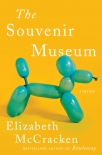An American Tragedy, Theodore Dreiser [best business books of all time txt] 📗

- Author: Theodore Dreiser
Book online «An American Tragedy, Theodore Dreiser [best business books of all time txt] 📗». Author Theodore Dreiser
“That’s right. But then Father’s a little hard of hearing. And Mother don’t hear anything, either, when she gets in her room and gets to reading. But it is hard to hear at that.”
“Why do people object so to dancing here?” asked Clyde.
“Oh, they don’t—not the factory people—not at all,” put in Dillard, “but most of the church people do. My uncle and aunt do. And nearly everyone else we met at the church tonight, except Zell and Rita.” He gave them a most approving and encouraging glance. “And they’re too broadminded to let a little thing like that bother them. Ain’t that right, Zell?”
This young girl, who was very much fascinated by him, laughed and nodded, “You bet, that’s right. I can’t see any harm in it.”
“Nor me, either,” put in Rita, “nor my father and mother. Only they don’t like to say anything about it or make me feel that they want me to do too much of it.”
Dillard by then had started a piece entitled “Brown Eyes” and immediately Clyde and Rita and Dillard and Zella began to dance, and Clyde found himself insensibly drifting into a kind of intimacy with this girl which boded he could scarcely say what. She danced so warmly and enthusiastically—a kind of weaving and swaying motion which suggested all sorts of repressed enthusiasms. And her lips were at once wreathed with a kind of lyric smile which suggested a kind of hunger for this thing. And she was very pretty, more so dancing and smiling than at any other time.
“She is delicious,” thought Clyde, “even if she is a little soft. Any fellow would do almost as well as me, but she likes me because she thinks I’m somebody.” And almost at the same moment she observed: “Isn’t it just too gorgeous? And you’re such a good dancer, Mr. Griffiths.”
“Oh, no,” he replied, smiling into her eyes, “you’re the one that’s the dancer. I can dance because you’re dancing with me.”
He could feel now that her arms were large and soft, her bosom full for one so young. Exhilarated by dancing, she was quite intoxicating, her gestures almost provoking.
“Now we’ll put on ‘The Love Boat,’ ” called Dillard the moment “Brown Eyes” was ended, “and you and Zella can dance together and Rita and I will have a spin, eh, Rita?”
He was so fascinated by his own skill as a dancer, however, as well as his natural joy in the art, that he could scarcely wait to begin another, but must take Rita by the arms before putting on another record, gliding here and there, doing steps and executing figures which Clyde could not possibly achieve and which at once established Dillard as the superior dancer. Then, having done so, he called to Clyde to put on “The Love Boat.”
But as Clyde could see after dancing with Zella once, this was planned to be a happy companionship of two mutually mated couples who would not interfere with each other in any way, but rather would aid each other in their various schemes to enjoy one another’s society. For while Zella danced with Clyde, and danced well and talked to him much, all the while he could feel that she was interested in Dillard and Dillard only and would prefer to be with him. For, after a few dances, and while he and Rita lounged on a settee and talked, Zella and Dillard left the room to go to the kitchen for a drink. Only, as Clyde observed, they stayed much longer than any single drink would have required.
And similarly, during this interval, it seemed as though it was intended even, by Rita, that he and she should draw closer to one another. For, finding the conversation on the settee lagging for a moment, she got up and apropos of nothing—no music and no words—motioned him to dance some more with her. She had danced certain steps with Dillard which she pretended to show Clyde. But because of their nature, these brought her and Clyde into closer contact than before—very much so. And standing so close together and showing Clyde by elbow and arm how to do, her face and cheek came very close to him—too much for his own strength of will and purpose. He pressed his cheek to hers and she turned smiling and encouraging eyes upon him. On the instant, his self-possession was gone and he kissed her lips. And then again—and again. And instead of withdrawing them, as he thought she might, she let him—remained just as she was in order that he might kiss her more.
And suddenly now, as he felt this yielding of her warm body so close to him, and the pressure of her lips in response to his own, he realized that he had let himself in for a relationship which might not be so very easy to modify or escape. Also that it would be a very difficult thing for him to resist, since he now liked her and obviously she liked him.
IXApart from the momentary thrill and zest of this, the effect was to throw Clyde, as before, speculatively back upon the problem of his proper course here. For here was this girl, and she was approaching him in this direct and suggestive way. And so soon after telling himself and his mother that his course was to be so different here—no





Comments (0)